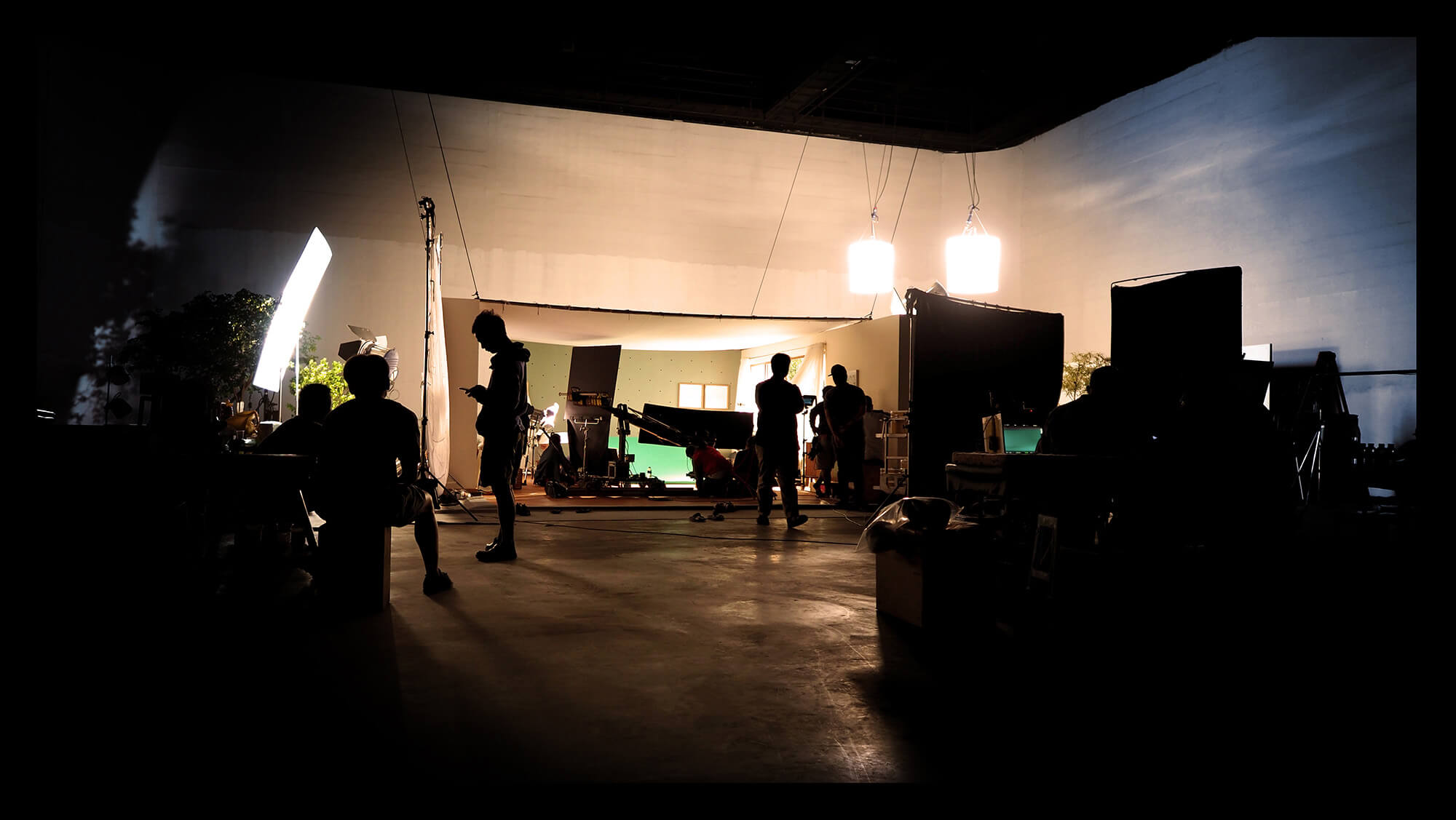In 2021, the number of film and television productions choosing to shoot in Greece increased significantly. In large part, this was the international market responding positively to strong incentives. Tools like cash rebate schemes have been in place in other countries for decades -but have only been implemented in Greece within the last four years.
However, film and TV series production (and related activities) continues to account for a very small part of the Greek economy: in 2018 the sector yielded 433 million euros, i.e., only 0.26% of the country's GDP. Audiovisual production may only make up for a small percentage of the GDP, yet it catalyzes other industries -like the tourism sector-, in ways that are not easily measured. There seems to be a great room for improvement.
However, alongside the opportunities emerging in recent years due to the increase in demand for audiovisual productions, a number of problems have also arisen, such as staff shortages affecting both the domestic market and the supply of services delivered to foreign productions.
The challenge is to ensure that existing demand is met and to reconsider the training of industry professionals. Strengthening the local film production ecosystem, which has always been supplying local as well as foreign demand with human and material resources, is also essential.
Below you can read stories, opinions, and facts about the present state of the Greek audiovisual sector, currently facing a shift in its operating model due to the changes introduced by technology. Interestingly, the story of this opportunity for development does not actually begin in Athens. It starts in Tehran.
***
Many people imagine shooting feature films or TV series as a world of brilliant lights and endless excitement, but the reality is quite different. Filming is a very repetitive and slow process. Dozens or hundreds of people wearing overalls or jeans are there to ensure that the same scenes are shot over and over again, without even following the script’s chronology. Directors and cinematographers peep at monitors, smile, make corrections, and ask the actors and crew to shoot the scene again. And on and on, until everyone is either satisfied or out of time.
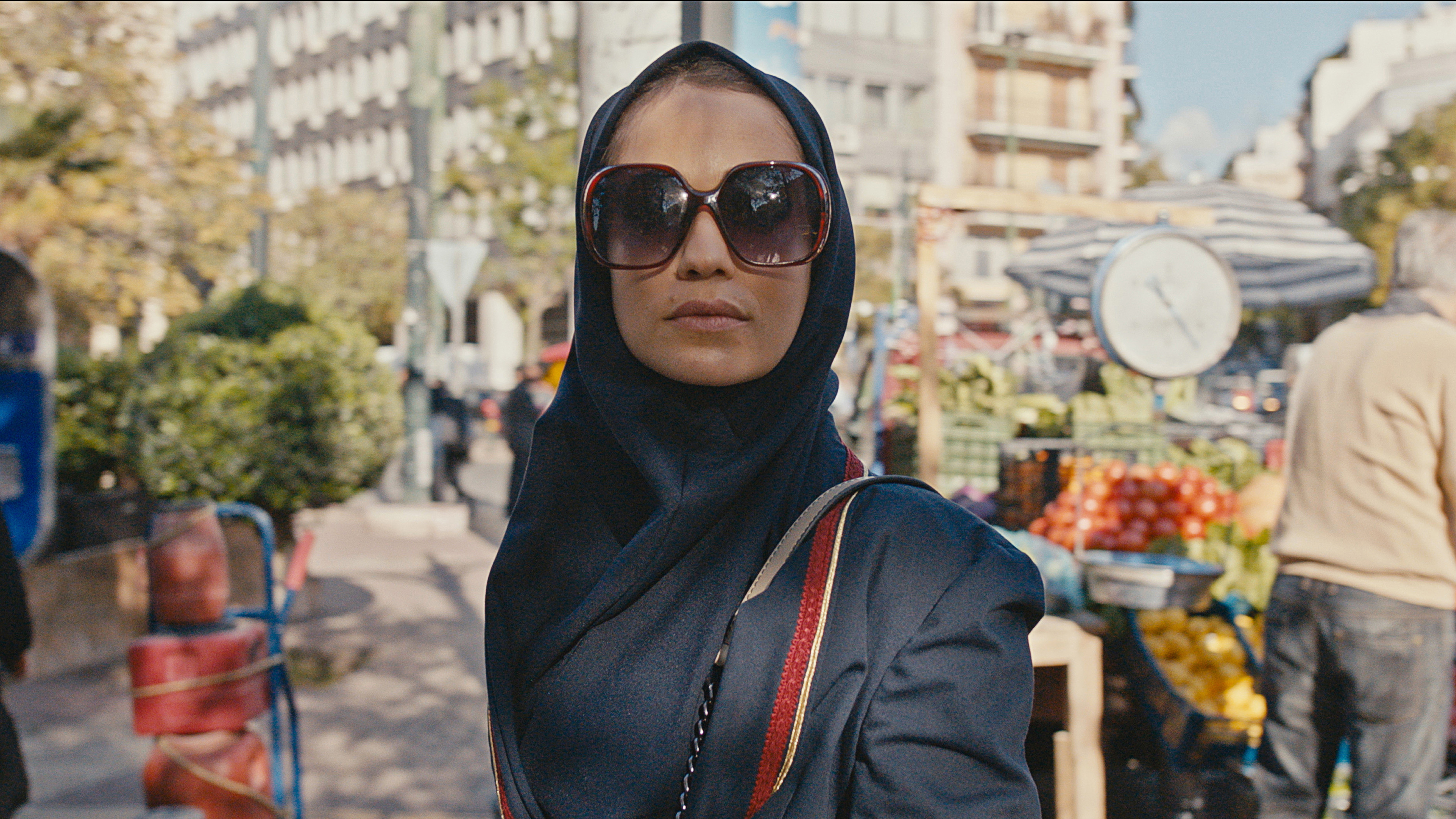
This is what was happening on a December afternoon, during the penultimate day of shooting for the second season of the Israeli spy TV series "Tehran". "Tehran"’s main character is a Mossad agent who arrives in the Iranian capital with a mission to sabotage the country's electricity grid and depart on the same day but, predictably, gets mixed up in a series of adventures. After the filming of the first season was completed in 2019, the series was sold to AppleTV+, Apple’s subscription platform and now a co-producer of the second season.
The scene shot today takes place in a Tehran police station but is actually shot in an old, derelict building in the Kallithea district of Athens. The 120-strong production team has turned a former Hellenic Telecommunications Organization office space into a huge set dominated by Ayatollah Khomeini's framed pictures, posters of the Revolutionary Guard, and murals and inscriptions in Farsi.
"The first problem I had with 'Tehran' was the shooting location. We are Israelis, so both visiting and working in the actual Tehran was completely out of the question," series producer Dana Eden says during a break from filming, shortly after posing for a family picture with the members of the production team. Two weeks earlier "Tehran" had won her the Best Drama Series award at the International Emmy Awards.
"I started doing some research on what Tehran looks like," says Eden, "and thought Istanbul might be an option, but we couldn't film there either. Around 2014, we had hit a dead-end… That same year, my family and I came on holiday to Pelion. After landing in Athens, I looked around and said, "God, this really looks like Tehran!" From a topography point of view, the city is really similar to Tehran. Athens is surrounded by high mountains, the buildings have balconies and the general feeling it gives off is the same, that of being in a massive city. At the beginning of 2018, we decided to film the series in Athens. We had meetings with various production companies and ended up working with Fenia Cossovitsa from Blonde, an amazing company, and an amazing woman".
***
It took approximately 5 months to shoot the second season of "Tehran". In that same year, there was a proliferation of film and TV productions choosing to film in Greece, and a significant number of them were relatively big-budget productions. In 2021 alone, 10 major projects —each with a budget between 8 and 20 million euros— were filmed in Greece: from "Rise" (previously titled "Greek Freak"), a biopic about Giannis Antetokounmpo shot in the neighborhood of Sepolia; to the sequel of "Knives Out", starring Daniel Craig and shot in Porto Heli and Spetses; and "Crimes of the Future" by David Cronenberg, starring Viggo Mortensen and filmed in Attica and Phthiotida. This is not the first time that projects funded by major American studios (Disney, Paramount) or from popular streaming platforms (Netflix, Apple TV, Amazon) are filmed in Greece. However, according to the authorities as well as professionals in the field, the volume of this year's productions was unprecedented.
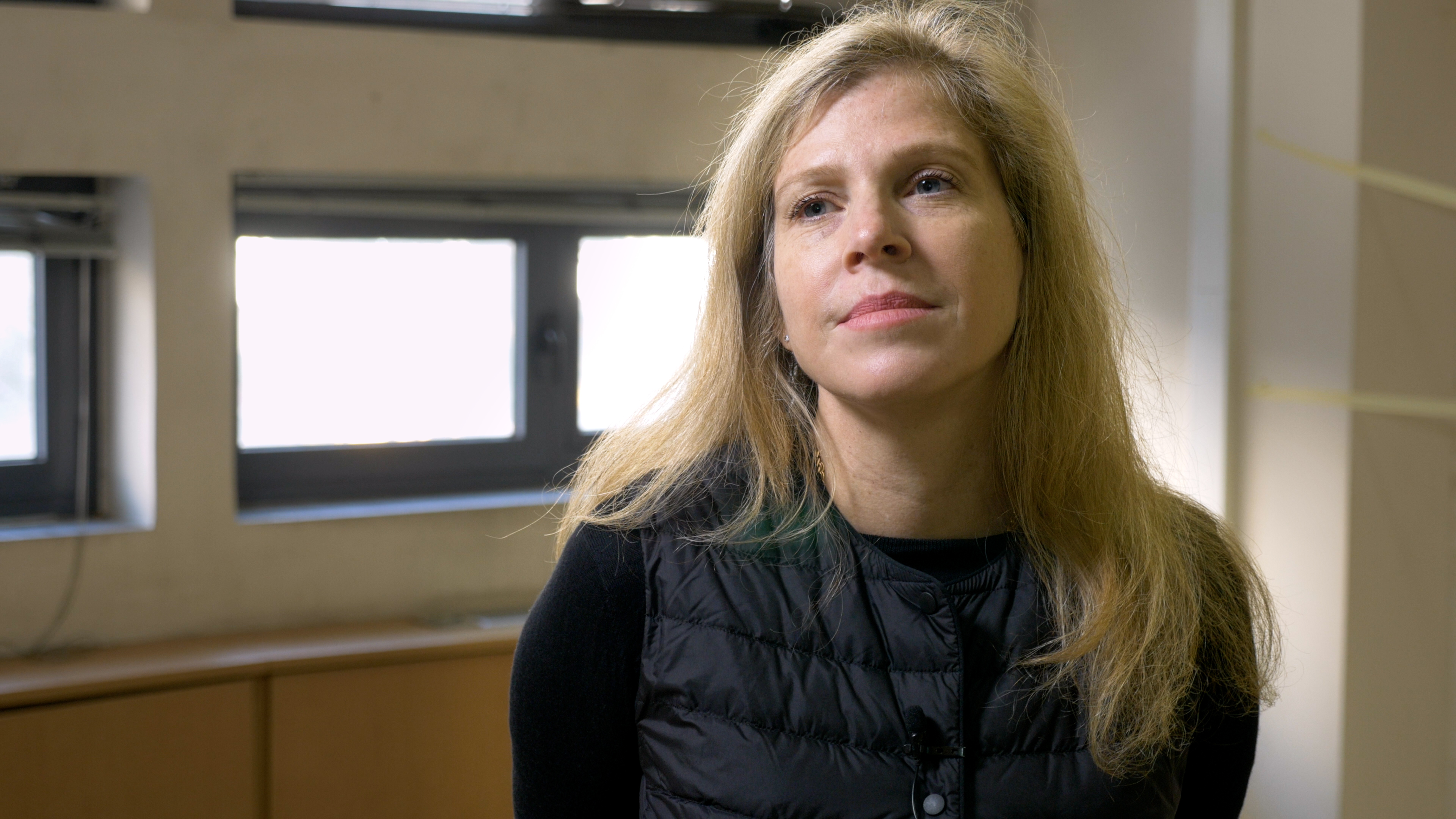
"The city management required for the realization of this volume of productions is completely different from what we have seen so far: streets closing down, cleaning services, getting the municipal police involved to regulate traffic and secure the filming site —all this was virtually unknown in Greece until recently", Stathis Kalogeropoulos says, while trying to explain the consequences of this year's soaring number of audiovisual productions filmed in Athens. Kalogeropoulos works as head of the Municipality of Athens Film Office, established right in the midst of the pandemic, in April 2020, in response to the rising demand to film in the city. "This is unlike anything we have seen in Athens. Never in the past did we have to close off Panepistimiou Avenue to film a police car chase," adds Vagelis Vlachos, CEO at the Athens Development and Destination Management Agency.
***
The growth of the audiovisual sector in Greece is driven not only by large-scale foreign productions (though the numbers on those are eye-catching) but also by local ad and television productions. "I don't think there was a single prefecture in Greece this year where there wasn't a Greek or international film being shot, especially in the summer," says Panos Kouanis, President and CEO of the National Centre of Audiovisual Media and Communication (EKOME). Kouanis has set the groundwork for the current state of the sector. EKOME S.A., a public entity founded in 2017 and supervised by the Ministry of Digital Governance is responsible, among other things, for the "horizontal" cash rebate incentive scheme, providing rebates amounting to 25% on eligible expenses when it was first established (with Law 4448/2017), which gradually grew to 35% (Law 4563/2018) and finally rose to the current 40% (Law 4704/2020).
Within the last four years, a total of 176 projects have been financed through the cash rebate system, among which 94 were local and 82 international productions, with a cumulative budget of 252 million euros. According to EKOME, these productions were filmed at 140 different sites across Greece and created 43,746 new jobs.
"One thing we have been doing since the beginning is to review and improve the rebate scheme every six months," says Kouanis, who has been president of EKOME since the very beginning. "An important shift was marked last year during the pandemic when we looked at what is happening in other countries to help us cope with demand and become more competitive. We proceeded to a series of changes, the result of which was that this year, already in January, (note: the demand for filming usually picks during the summer months), we are witnessing an unprecedented boom in audiovisual productions".
***
Financial incentives, however, are not the sole factor when it comes to attracting productions of all shapes and sizes. To begin with, international production companies need to become familiar with the filming locations a country can supply: everybody has seen a picture of the Acropolis or of Mykonos but not all producers hang out in Kallithea so it can occur to them that this might be a good filming location for "Tehran". Reputation is also important: there are high chances that Franco Zeffirelli's bad experience while shooting the musical "Othello" in Heraklion in 1985 averted other producers from coming to film in Greece. Nikos Gatzogiannis was one of the few producers Paramount worked with in the 1980s, when his film "Eleni", which he tried to shoot in Greece, ended up being canceled following public reactions. The long-standing bureaucratic issues linked to licensing, delays, access to archaeological sites, etc., only served to strengthen these impressions.
"If you want to shoot a film with the Acropolis gleaming in the background, even today it is better to have the real thing in the frame and not just computer graphics," says Markos Holevas, President of the Greek Film Centre's (GFC) Board of Directors. "If you have a positive experience, you may well come back. If you have both a positive experience and financial incentives, then you will definitely come back". Presently, the Hellenic Film Commission, the first port of call for foreign producers interested in the local film market, is also housed within the GFC.
***
But what, in fact, is the reason behind all this? Why is the country providing incentives, financial or other, and seeking to create favorable conditions to attract foreign producers? As far as numbers are concerned, the audiovisual sector in Greece accounts for a relatively small part of the economy: according to the Hellenic Statistical Authority (ELSTAT), in 2018 the sector yielded 433 million euros or 0.26% of the country's GDP (the figure also includes music productions and discography). The potential for growth is significant. The audiovisual sector in Nordic countries is more than double in relative size. In Finland, a country without much of a tradition in audiovisual productions, the industry generates a gross value of 1.06 billion euros -that is, 0.45% of its GDP.
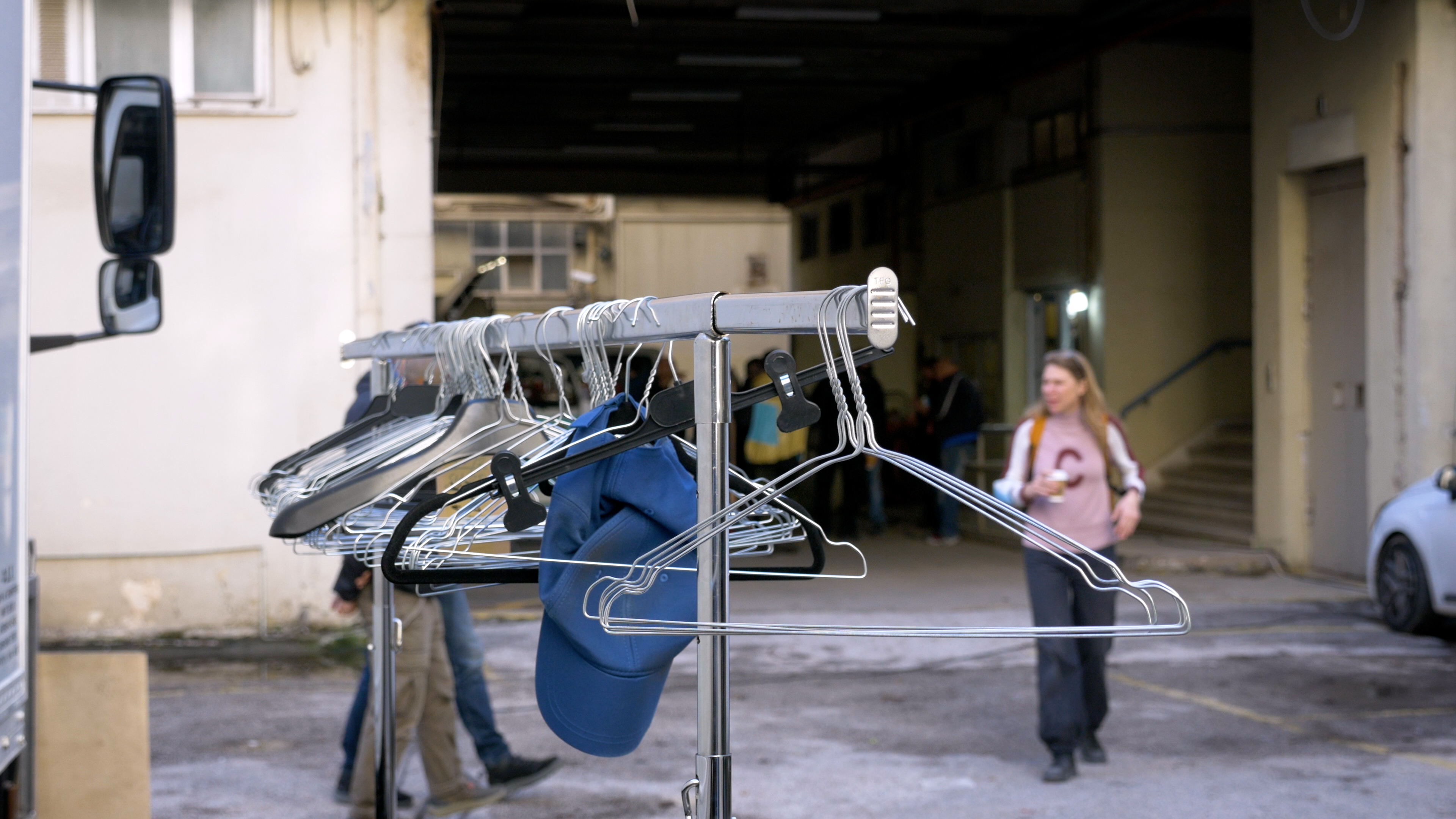
In addition, the financial incentives put in place in order to help the industry develop and attract both domestic and international productions are generally considered a good investment. In the United Kingdom, where the audiovisual sector is highly developed, each pound sterling offered as tax deduction is estimated to accrue £3.74 in tax revenue. In France, which has an equally advanced audiovisual sector, it is estimated that every euro spent through incentive financing schemes brings back €2.7 euros in taxes and insurance contributions. In Italy each euro yields €1.4 euros in VAT and income tax. In the Czech Republic, 1 crown offered as an incentive brings in 1.5 Kč to 1.62 Kč in government revenue. In Croatia, the benefit is estimated at 1.26 kn for each kuna offered, while in Hungary the impact is estimated to be similar.
***
Read The Study Of The Foundation for Economic and Industrial Research (in Greek)
In 2014, before the implementation of aggressive financial incentive schemes here in Greece, the Foundation for Economic and Industrial Research (ΙΟΒΕ) tried to calculate the potential benefits of attracting international film productions. IOBE's researchers estimated that if a large-scale international production with a budget of 20 million euros were to be filmed in Greece, it would increase the country's GDP by 39 million euros, create about 750 jobs, and have a direct or indirect impact on other local industries.
One of the most characteristic examples of such indirect impact is tourism. The first important foreign film shot on location in Greece was "Boy on a Dolphin" with Sophia Loren, filmed in Hydra in 1957. In the 1960s, "The Guns of Navarone" and "Alexis Zorbas" put Rhodes and Hersonissos in Crete on the world tourist map almost overnight. In 2018, following the release of "Mamma Mia!" filmed in Skopelos, Skiathos, and Pelion, tourist arrivals in the area increased by 5% compared to the previous year, according to unofficial sources. Ten years later, the "Mamma Mia!" production team chose to film the sequel in Croatia.
The island of Amorgos is another telling example. Markos Holevas explains: "In 1989, the French film 'The Deep Blue' was filmed in Amorgos. The film spent 13 million drachmas on an island which, at the time, had a gross annual income of 180 million drachmas. This is quite a big contribution for a single film production."
"This money served as a kind of yeast. The islanders used it to build better hospitality facilities —deprived, as they were, of the chance to spend it on consumer goods since even the road network on this remote island was underdeveloped! After the film became a box office hit, the first tourists started arriving —they were mostly young, French, and not very big spenders."
"But when they returned to France, they decided that what they had experienced during their holiday was special and unique and started to spread the news. Later on, Amorgos started receiving older tourists, who left more money behind, therefore sparking economic growth. In this way, the island turned into an international destination in a matter of a few years."
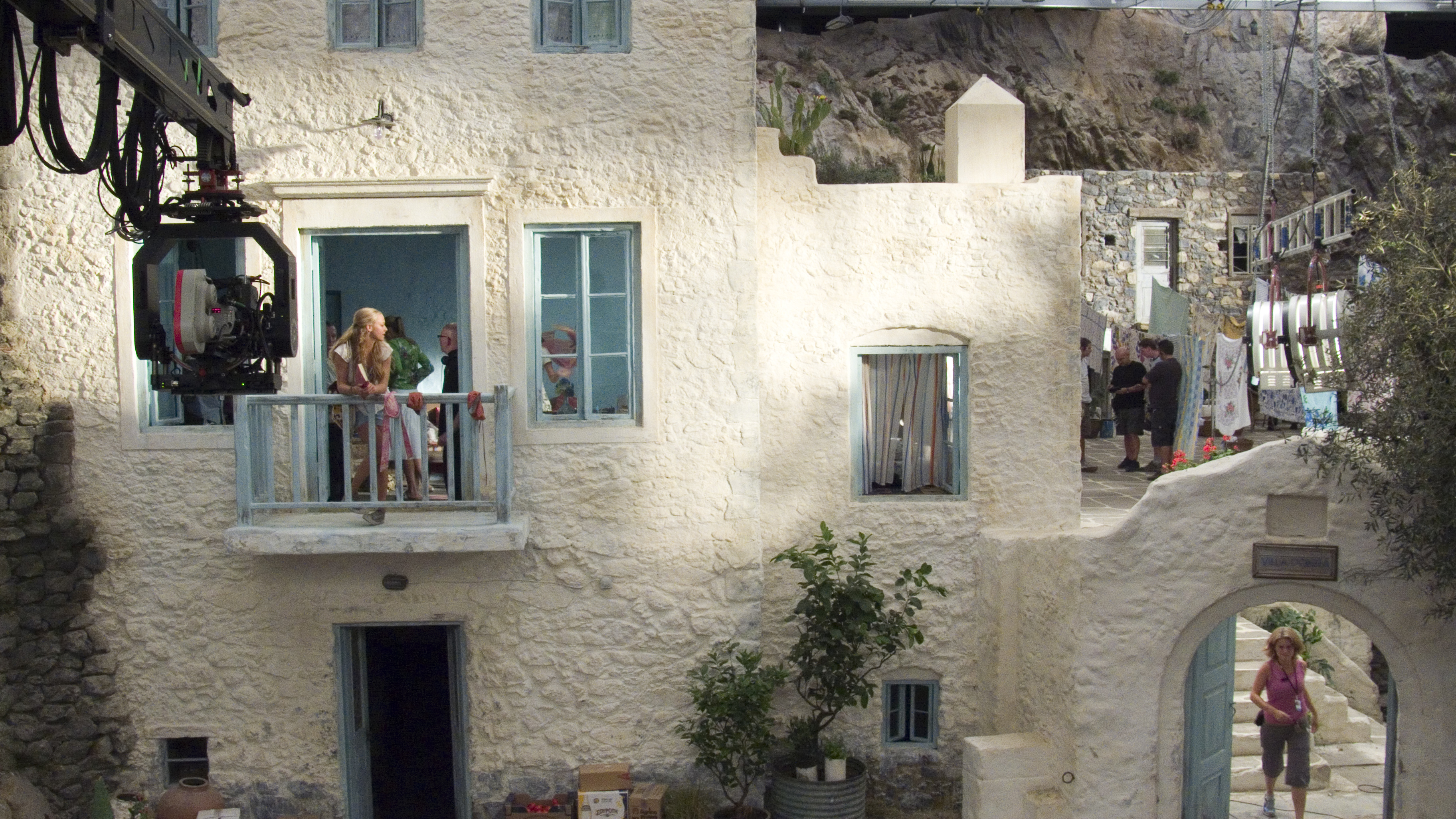
Cinema productions do not only benefit the islands, some of which have no trouble attracting tourists anyway. "Right now, Sepolia is starting to draw in a lot of tourists, all because of the 'Greek Freak' (note: the title of that film has changed since the interview; it is now called "Rise"). This is something we expect to see more of once the film becomes available on Disney's platform," says Stathis Kalogeropoulos. Sepolia is the Athens neighborhood Giannis Antetokounmpo grew up in.
***
When it comes to attracting foreign producers, the estimates for 2022 are looking bright. Everyone we spoke to while researching this article agreed that demand is currently very high. They also agreed, however, that the local market is not in a position to cater for many more productions, whether domestic or foreign than it did this year. The reason for this is simple: although entrepreneurs respond positively to the incentives offered, there are not enough skilled workers in Greece to meet the sharp increase in demand.
The problem is so pronounced that even foreign producers are aware of it. "I believe that there aren't enough professionals in Athens to cover the demand for productions —this was one of the problems we faced while filming for the second season," said Dana Eden, producer of "Tehran".
Panos Kouanis, President and CEO of EKOME, also acknowledges the problem. "Right now, foreign producers filming in Greece are also bringing in crews from other countries (note: Law 4704/2020 made this possible). Crews from the US and Serbia were used for the new Daniel Craig film shot in Porto Heli. Producers in Thessaloniki brought in teams from Bulgaria, while the French producers who filmed in 2021 came with their own crews from France. This was also the case in Disney's 'Rise', which had a lot of Americans among the crew."
"In some specialties, local workers do not have the skills to work in productions of this scale. There are no expert stunt performers, for example, to cover the needs of a film with a lot of action and stunts. The same is true about certain types of graphics, set designers, or equipment operators. Some of the equipment used is so specialized that it travels to Greece accompanied by its operators. Given this important shortage of manpower, the challenge now for Greece is to implement training programs so that young people can learn the job. I believe that this is a very 'good' problem for Greece, a country with a youth unemployment rate of 35%."
"We are currently facing two main issues" GFC President Markos Holevas notes: "The first is the number of people available to cover the needs of both local and foreign productions filmed in Greece, and the second is the level of their skill set. This is not merely a question of professional education. It also has to do with how well people are trained to join large crews with high levels of specialization. Focusing on training is definitely key in this process."
***
A considerable number of initiatives to increase labor supply in the sector have been launched. Nicholas Yatromanolakis, The Deputy Minister of Culture and Sport responsible for contemporary culture, has announced the government’s intention to found a State School of Cinema and Audiovisual Media, patterned after its French counterpart Fémis and funded through the EU Recovery and Resilience Fund. The Municipality of Athens is also planning a training program for assistant producers, scheduled to be held in January in cooperation with NBC Universal; as well as "smart" programs enabling a timely diagnosis of potential shortages in the market, which will then be covered through the EEA Grants. From time to time, EKOME also supports initiatives, while the Thessaloniki International Film Festival has a vibrant training and workshop department. Several production companies, both Greek and foreign, are also offering internship opportunities.
These shortages, however, are not going to be covered overnight. "At the moment, there are no institutions offering training for cinema workers, and Greece is trailing behind," stated Eleni Kossyfidou, producer and Treasurer of the Hellenic Film Academy (HFA). "For example, an electrician normally dealing with houses could not be suddenly brought in to work in film production and be efficient. He or she will need to work alongside a specialized audiovisual electrician and gain the required experience. It is also necessary to establish training schools where experienced electricians will be teaching the job to young people interested in entering the field".
Everybody agrees that certain professions are in short supply in the market, including assistant directors, line producers, post-production supervisors, operators, electricians, grips, camera assistants, dressers, etc. For months now, many Greek producers have been having trouble securing crews for foreign or Greek productions scheduled to be filmed in the fall of 2022, or even in 2023.
These staff shortages have a horizontal -though uneven- impact on the various types of productions within the industry. Smaller-scale productions, mostly Greek or international co-productions, are usually more affected. These productions have to compete for the limited supply of crews with international projects of a much larger scale and with Greek television series, often filmed to cinema standards, the number of which has also soared in the current period owing to the incentives schemes. During conversations with producers, stories about offers and counter-offers for equipment and crews and about people who had booked projects with Greek producers and then pulled out abound.
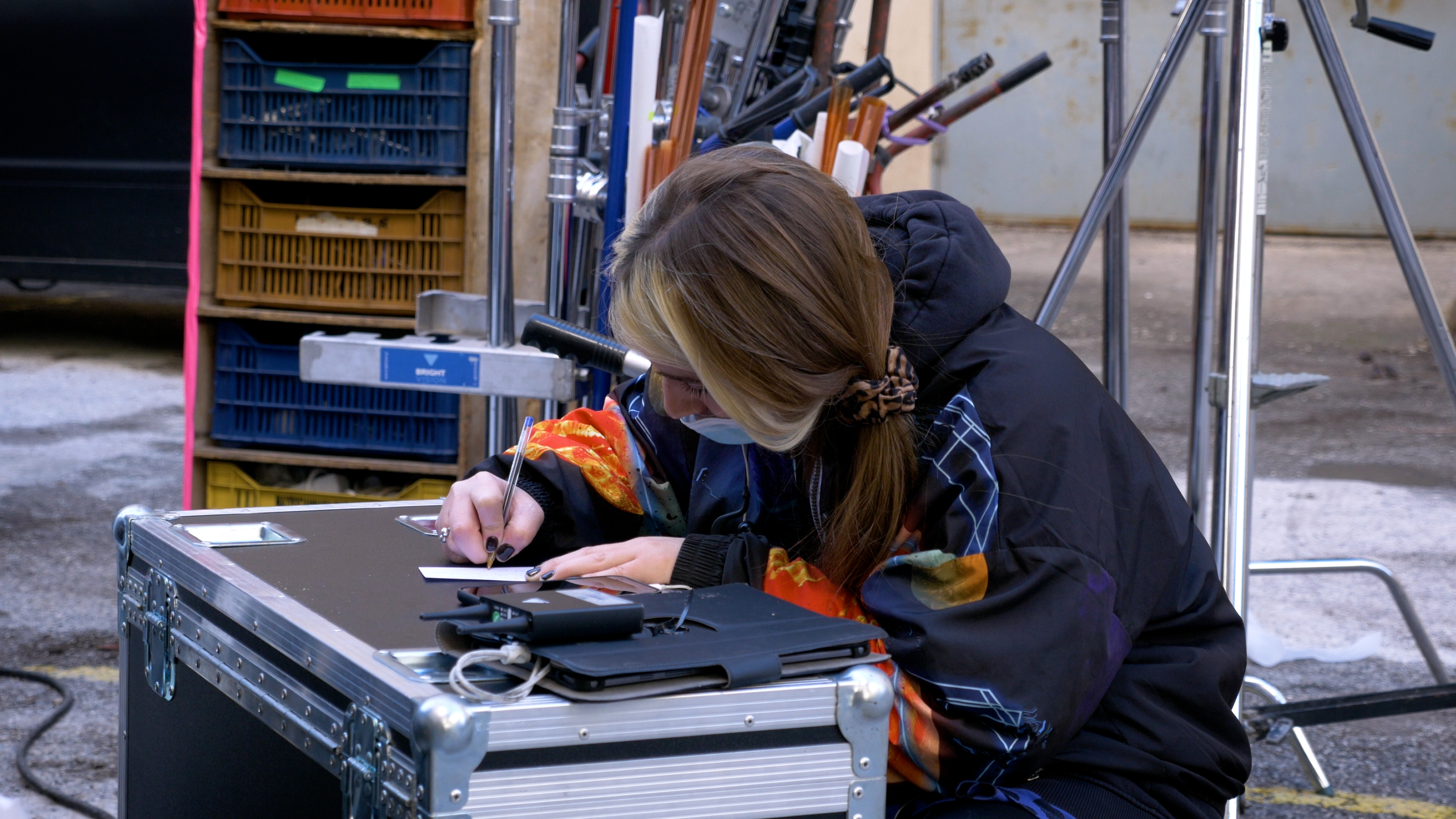
The local cinema production market has also been affected by the introduction of incentives due to the cash rebate system and the bureaucracy it entails. "Being able to logistically support all these investment schemes is key," says Yorgos Tsourgiannis, film producer and Deputy Chairman of HFA Board of Directors. "Audit delays, for example, could cause serious cash flow problems to producers. Bigger production companies with high turnovers can, at least partly, absorb these financing gaps. Smaller production companies experience these cash flow problems more acutely."
Small-scale Greek producers often bemoan the byzantine procedure of submitting their expenses in order to benefit from the incentives. "This is hardly manageable for a small-scale producer. You need to have a department dedicated to this activity," says director, producer, and Deputy Chairman of HFA Board of Directors Elina Psykou. "Big production companies usually have in-house accountants, which is not true for smaller companies".
Panos Kouanis, President and CEO of EKOME, acknowledges the problems: "The problem with the rebate procedures is that they follow the system and the operating framework of the 2016 investment law. The simpler the operating framework the Greek investment law enforces, the easier our job will become. Cash rebate schemes were already present in other countries since the 1990s, but as they arrived in Greece after many years of delay, they had to be set up using an already existing framework, and that was the Greek investment law. We hope that the new investment legislation about to be passed by the Greek parliament will make provisions for more flexible processes. For example, the fact that financial audits will be performed exclusively by external auditors will make the process much quicker."
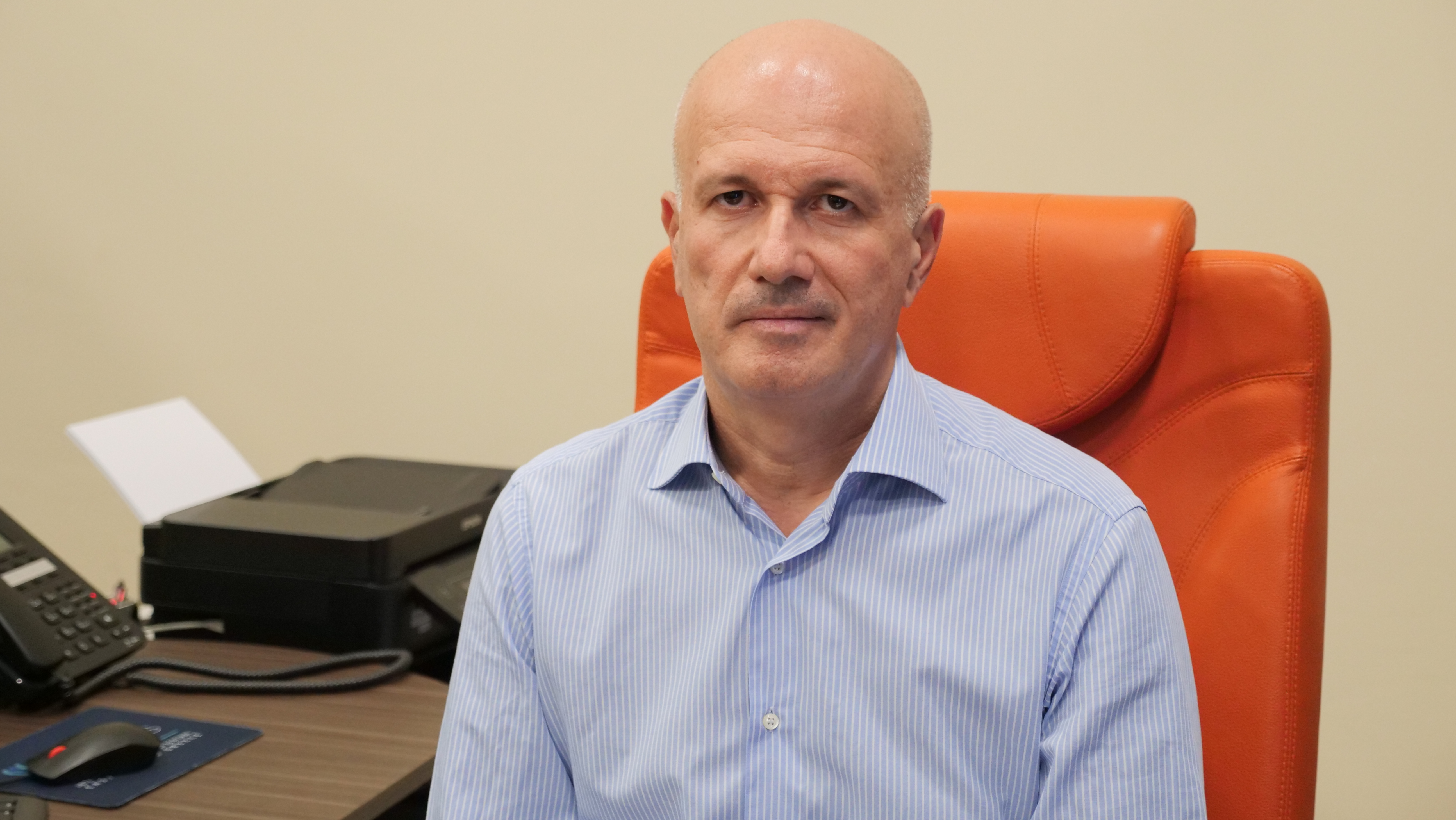
All figures seem to be pointing in the same direction: cinema presents an important development opportunity for Greece. However, as the recent shortages in manpower indicate, securing the interest of foreign producers is not enough to exploit this opportunity to the fullest. The local market seems to be key in the process of development. On the one hand, the local market will need to grow, in order to cope with the high demand created by foreign producers. But how, on the other hand, could this growth be achieved if the local creative reservoir is not offered the opportunity to develop its talent?
"Greek cinema, i.e., Greek movies and their makers, has already shown its potential", says Giorgos Tsourogiannis. "This, by itself, merits recognition and support by the centers of power responsible for exercising the country’s film policy. This is the only way to help the sector grow and further foster the development of talented directors, scriptwriters, producers, and technicians. Once this is done, everything else will follow."
Anyone trying to become better acquainted with the local cinema market will undoubtedly come across a major obstacle: the lack of quantitative data. Details about the number of Greek movies produced per year are not systematically recorded, and the same is true about their costs, their box office run, and the profile of their crew members. "This data is available, but no effort has been made to put it in a database," Markos Holevas says, referring to the films which have received funding from the Hellenic Film Center (which includes the majority of the local cinema production). "This is something we have already started working on and soon we will be able to digitize data previously existing only in hard copy. Within 8 and 10 months we will have better-quality data at our disposal."
***
As mentioned above, the most recent systematic recording and publication of data related to Greek cinema was the 2014 IOBE study. At the time, researchers estimated that the annual output was about 20 feature-length films, at an average cost of €450,000 each. (The same study estimated that those films contributed a total of €14 million euros to Greece’s yearly GDP and created 270 new jobs.) Empirically, everyone we interviewed agrees that the number of films produced remains about the same, but that their average cost has increased significantly. Estimates for the average cost of a Greek movie today range from €600,000 to €900,000 euros.
Yet despite the significant bump observed since 2014, these numbers remain comparatively small. The average production cost of an EU film is €3.16 million, while the median is €1.93 million -which goes to show that the local market is actually very small. The actual number of films produced here is at least twelve times smaller than the corresponding number in the three largest European markets, i.e., Italy (312 films in 2019), France (240), and Germany (237). "Cinema in Greece never really became an industry", says Markos Holevas. "Over time, the sector’s economic data would place it rather in the arts and crafts category".
***
It is, obviously, difficult for the Greek market to approach the number of larger markets with strong cinematic traditions, like Italy. But how could this sector organically evolve into a growing industry? What needs to change and how much room is there for further development?
"Nobody could ever design a policy that will result in the production of masterpieces," says Yorgos Tsemberopoulos, the director of Sudden Love and Back Door. "It is, however, possible to develop a policy that will help us make good films. It is my personal, subjective opinion that Greek cinema should focus on artistically sound films with a strong appeal to the public". He cites three examples of such films, dating from two different periods: "Stone Years" by Pantelis Voulgaris; "Loafing and Camouflage" by Nikos Perakis; and "A Touch of Spice" by Tassos Boulmetis.
"Mainstream cinema should be the core of the sector and yet, in the last 30 years, there were comparatively few good Greek films made which were also commercial successes," noted the 70-year-old director. "There should be one or two films made every year which the Greek public loves and are well-made and complete in every sense. An opportunist way to satisfy the public is through cheap comedy. There is also good comedy but for this, you need good writing."
How could this be achieved? Tsemberopoulos stresses the importance of good scripts but also notes the shortage of screenwriters who could support this kind of development. "The fact that major Greek TV channels have never been interested in making films that would get people to the cinema (note: in several European countries, TV networks are also very active in film production), has many collateral effects", he notes. "One of these is that writing film scripts is not a professional activity and accomplished scriptwriters no longer choose to write for the cinema. The hothouse we always need to monitor is short film production. This is the starting point for every talent in the cinema world. This is where the new creative forces in the field spring from, and where people find out who they are."
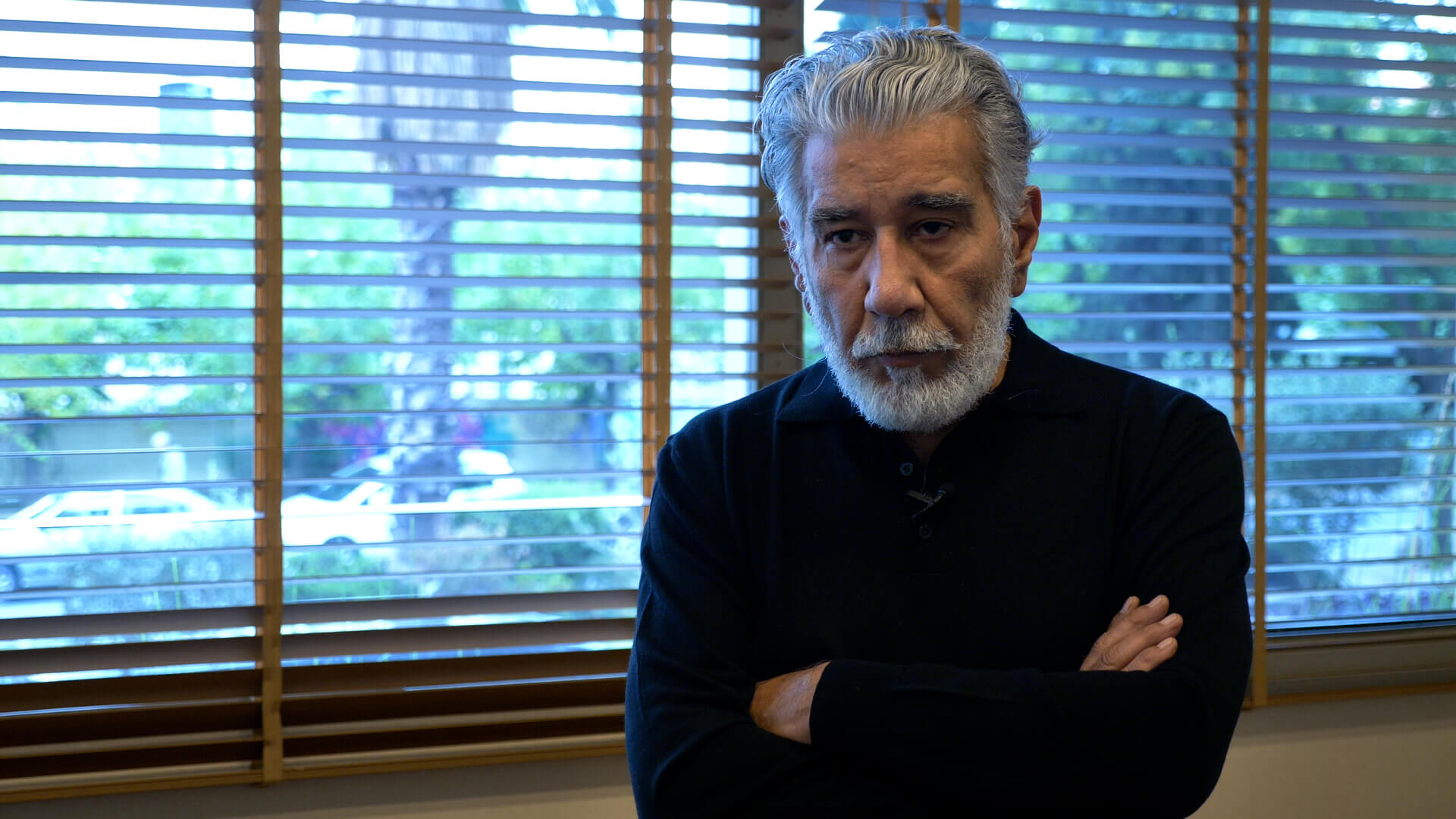
He moves on to suggest potential incentives that could be offered to prevent losing scriptwriting talents to theater or TV: a lot of micro-funding for short film scripts, scriptwriting workshops, etc. At this point, to illustrate the interesting part publishing houses have to play in this, he relates an unknown anecdote from the 1980s: "The movie 'Sudden Love' was based on "Talgo", a novel by Vassilis Alexakis. When I went to ask for the rights at the French publishing house, they wondered why I wanted to make the film in Greek and not in French. A film with Greeks shot in Greece and yet have the actors speak in French? I was profoundly impressed by the fact that the publishing house had (and has) a dedicated department dealing with TV and film rights and actively pursuing to turn their authors’ books into TV series or films".
***
However, Greek cinema’s few but notable success stories during the last decade are not mainstream features but rather "arthouse" or "crossover" films that combine elements from many genres. Although not necessarily of a smaller budget -and sometimes successful in international sales and distribution-, these films are mainly screened at festivals around the world and rarely find wide distribution.
"From 2010 onwards, Greek cinema has an international presence, winning awards, participating in major festivals around the world, securing representation by international sales agents and a high volume of sales," says Yorgos Tsourgiannis, who produced "Dogtooth", Yorgos Lanthimos' second feature film which was awarded at Cannes in 2009 and was nominated for a Best Foreign Language Academy Award in 2011. "All this, in fact, is currently happening with a frequency which was by no means a given 10 years ago."
Even though its financial impact is small, independent Greek cinema is interesting for a number of reasons. One of them is that it is the kind of cinema that filmmakers and professionals love: it is often the very fact that they make this type of cinema that keeps them working for the film industry. Independent cinema is usually the breeding ground where filmmakers experiment and develop skills that are later harnessed in many ways across the industry.
What is more, uncharacteristically for most Greek endeavors, this is an activity that has its gaze turned towards the international market. This is manifested not only through the international festival-goers who, in the words of Eleni Kossyfidou, "expect to see the next movie from Greece," but also in the way these arthouse and crossover films are produced.
"Α new generation of producers decided to turn a lot more decisively towards the international market and pursue co-productions," Yorgos Tsourgiannis says. During the last decade, the Greek institutions traditionally fostering local film production —the Hellenic Broadcasting Corporation (ERT) and the GFC— were going through a rough time due to the financial crisis. In their effort to secure funding partners from abroad, Greek producers managed to make films with bigger budgets and of higher standards. The market was already there —and it still is. In 2016, 416 European films, a fifth of the total film production in the EU, were international co-productions.
International co-productions are also more likely to find distribution abroad. In 2019, 162 European films were screened in the US, selling 36.1 million tickets; 62 were screened in China (20.4 million tickets); and 887 (non-German European) in Germany (12.2 million tickets).
But how likely is it for a Greek film to have access to this market? "Although things are steadily improving, there is still not much support for a Greek film trying to make it abroad," Eleni Kossyfidou says. "Any effort made is orchestrated by the producers. Already while in development or after we have started producing, we get in touch with sales agents and explore their interest in taking on the film."
***
In addition to the important shifts in the profile of Greek productions as well as the people behind them, a significant and much wider discussion is currently unfolding on a global level, a conversation that can be distilled in the question: "what is cinema today?". At the 90th Academy Awards, in February 2019, a Spanish-language film, Alfonso Cuarόn's "Roma", gathered ten nominations and eventually won three awards. What was peculiar about this film was not only that the characters did not speak English, but also the fact that it was not produced by one of the big studios, but rather by streaming platform Netflix, which aired the film almost simultaneously with its cinema release. Netflix had broken free from the world of TV series and movies and had "invaded" the stronghold of the American Academy of Motion Picture Arts and Sciences. Similarly, two years later, David Fincher's "Mank", also produced by Netflix and aired using the same formula, was nominated for ten Academy Awards and eventually won two.
An increasing number of high-quality, almost cinematic level TV series are being produced in Europe every year, to be aired on streaming platforms, pay-TV channels, or even open-air TV. 422 of these shows were produced in the EU in 2015 -their number climbed to 649 in 2019. Meanwhile, subscriptions to on-demand platforms in Europe jumped from just 300,000 in 2010 to 140.7 million in 2020. At the same time —at least before the pandemic and the imposition of lockdowns— people did not stop going to the cinema. On the contrary: in 2019, the number of cinema admissions in Europe was the highest since 2014. During the same year, 860 new European cinema screens were added to the 33,321 already in operation.
Nowadays, it is difficult to strictly differentiate between cinema and TV. "The Greek legal framework regulating 'audiovisual works', needs to undergo revisions," Markos Holevas says. "It feels like we are living in the past, talking about TV and the National Council for Radio and Television. The current framework places many aspects of the audiovisual sector under the jurisdiction of the Secretariat General of Information and Communication. At the same time, cinema production falls under the antiquated model of the Ministry of Culture. In the 21st century, we are witnessing a major revolution: the osmosis between the different media is now so advanced that the need has emerged to refer to 'audiovisual works'. It is Greece’s turn to come up with definitions that will enable us to legally differentiate between an audiovisual work of cinema and works that are closer to news reporting, video gaming, etc."

When it comes to TV, whether traditional or new-style, there is one demand that Greek filmmakers have been steadfastly pursuing for decades: that 1.5% of the profit generated from TV adverts on Greek private television networks is allocated to supporting local cinema production. Following pressure, this demand was included in a law passed in 1986 (1597/1986) during Melina Mercouri’s term at the Greek Ministry of Culture. It was reaffirmed in the next cinema legislation (Law 3905/2010) 25 years later under Pavlos Geroulanos, but it is still to be enforced. "Private TV networks, although not paying the 1.5% to support Greek cinema, are nonetheless benefiting from cash rebate incentives," Elina Psykou says.
This dissatisfaction with the non-disbursement of the stipulated 1.5% may well be just the tip of the iceberg. Conversations with many Greek filmmakers often reveal frustration. They do not turn against a specific government or person, but bitterly note the perennial lack of a comprehensive strategy, a (five-year? ten-year?) plan that would define the "Greek film brand" and lay out the steps that need to be taken to help build it. It is telling that during the crisis which gripped the country between 2009 and 2019, nine different Ministers of Culture were sworn in, each with a different set of priorities and level of understanding of the sector.
***
Legend has it that Nikolaos Martis, Minister of Industry under Konstantinos Karamanlis, envisioned what was to become the first legislation concerning Greek cinema during a trip to Paris. It was the early 1960s and he was in France to attend a meeting on the Treaty of Paris, the founding document of the European Coal and Steel Community -which later evolved into the European Union. On the sidelines of his visit, driving past a movie theater showing Jules Dassin’s "Never on Sunday" with Melina Mercouri (according to another version of the story, the film was "Stella" by Michael Cacoyannis) on a taxi, he saw queues of spectators waiting to buy a ticket. This was when, according to the story, he had the idea that cinema was a viable industry for Greece. Upon his return, he passed a law that renders imports of machinery and materials used for films exempt from taxation, in an era when heavy duties and barriers of all types were imposed on imported materials. In essence, this law was what brought about the 1960s boom in Greek cinema. In the 1966-67 season alone, an unprecedented 117 Greek films were produced.
Since then, of course, both the cinema sector and Greece itself have changed tremendously. By nature, cinema has always oscillated between commercial opportunity and art. Today, we seem to be facing yet another turning point. Technological advances give rise to new opportunities for Greece and its economy. To reap potential benefits from the explosion of demand generated by foreign producers, Greece needs, above all, a vibrant and flourishing local industry, capable of supporting and creating creative professionals.

